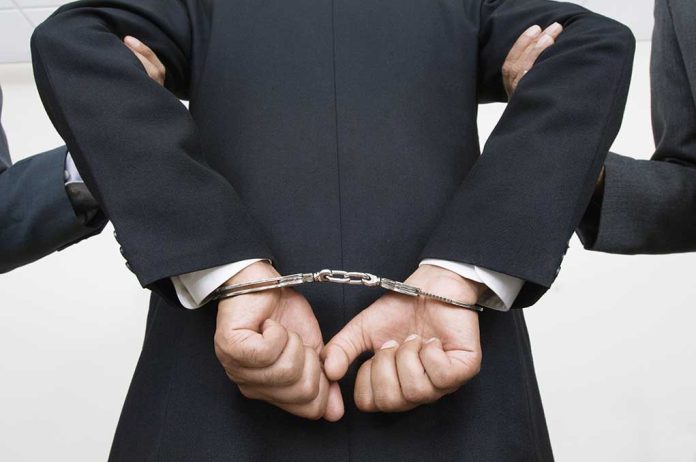
Russia sentences a prominent election watchdog to 5 years in prison amid global outcry, revealing Putin’s ruthless attempt to silence those who expose his fraudulent electoral system.
Key Takeaways
- UN Special Rapporteur Mariana Katzarova demands the release of Grigory Melkonyants, calling his detention a “grave miscarriage of justice”
- Melkonyants was held in pre-trial detention for over a year without evidence that he posed any risk
- His imprisonment is part of Russia’s broader crackdown on rights organizations following the 2022 Ukraine invasion
- Russian authorities labeled his organization Golos as a “foreign agent” to justify the politically motivated charges
- The case highlights Russia’s escalating suppression of election transparency advocates under Putin’s regime
Russia’s War on Election Transparency
In a move that further exposes Russia’s contempt for democratic principles, authorities have sentenced Grigory Melkonyants, a prominent election monitoring expert, to five years in prison on politically motivated charges. The conviction represents the latest effort in President Putin’s systematic campaign to eliminate independent oversight of Russian elections. Melkonyants, co-chair of the election watchdog Golos, was convicted merely for his association with an organization that the Russian government conveniently labeled as undesirable after years of exposing electoral fraud across the country.
UN Special Rapporteur on human rights in Russia, Mariana Katzarova, has strongly condemned the sentencing, describing it as a grave miscarriage of justice and a blatant attempt to silence one of Russia’s critical voices for electoral transparency. The international rebuke highlights growing concern over Russia’s abandonment of even the pretense of legal due process in cases involving government critics. Meanwhile, the Kremlin continues its policy of targeting anyone who challenges Putin’s grip on power through exposing the sham nature of Russian elections.
The Sham Trial and International Response
The legal proceedings against Melkonyants revealed the farcical nature of Russia’s judicial system when dealing with political cases. He was held in pre-trial detention for over a year without any evidence suggesting he posed a flight risk or threat to the investigation. The prosecution relied on misrepresented evidence and outdated information, demonstrating the fabricated nature of the charges. This mockery of justice serves as a stark reminder of how Russia’s legal system functions as a weapon against political dissidents rather than an instrument of law.
“Melkonyants is being punished not for a crime, but for his steadfast commitment to human rights and safeguarding the principle of free and fair elections in Russia, for over 20 years, ‘Golos’ has advanced electoral transparency and reform in Russia.” said Mariana Katzarova, UN Special Rapporteur on human rights in Russia.
Katzarova highlighted that Melkonyants’ detention violates multiple international legal standards, including Article 19 of the International Covenant on Civil and Political Rights, which protects freedom of expression. The UN expert’s intervention represents growing international recognition that Russia has abandoned its commitments to human rights standards. Her statement connects Melkonyants’ case to the broader pattern of repression that has intensified since Russia’s 2022 invasion of Ukraine, demonstrating how domestic repression and foreign aggression are two sides of the same authoritarian coin.
Russia’s Expanding Crackdown on Civil Society
The targeting of Melkonyants is part of Putin’s larger campaign to eliminate all independent civil society organizations in Russia. The Kremlin has weaponized legislation on foreign agents and undesirable organizations to criminalize international cooperation and civic engagement. This legal framework provides a veneer of legitimacy to what amounts to the systematic dismantling of Russia’s remaining independent institutions. Recently, even Amnesty International was declared an undesirable organization for allegedly backing Ukraine against Russia, promoting Russophobic narratives, and financing extremists and foreign agents.
The repression of election monitors like Melkonyants serves a clear purpose: to eliminate oversight of elections and enable the Kremlin to maintain the illusion of democratic legitimacy while engaging in widespread fraud. This strategy has become increasingly important to Putin as public support for his regime wavers under the weight of economic sanctions and the ongoing war in Ukraine. By imprisoning respected figures like Melkonyants, the regime sends a chilling message to anyone who might consider challenging electoral manipulation in future Russian elections, effectively ensuring that Putin’s power remains unchallenged internally.




